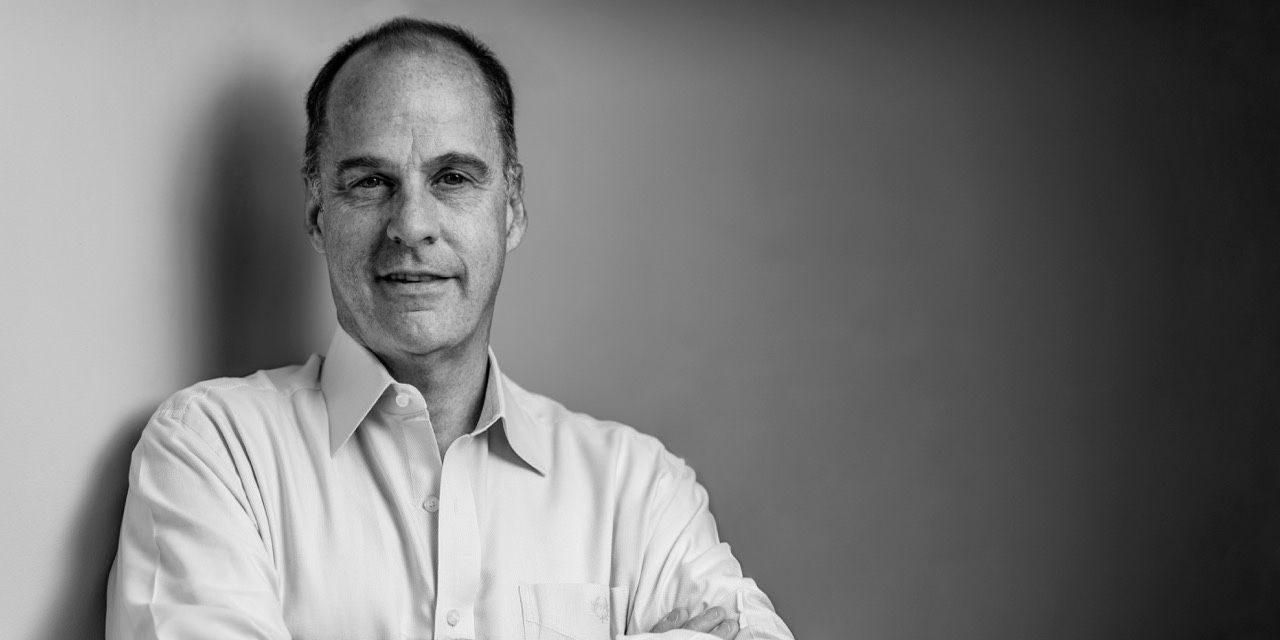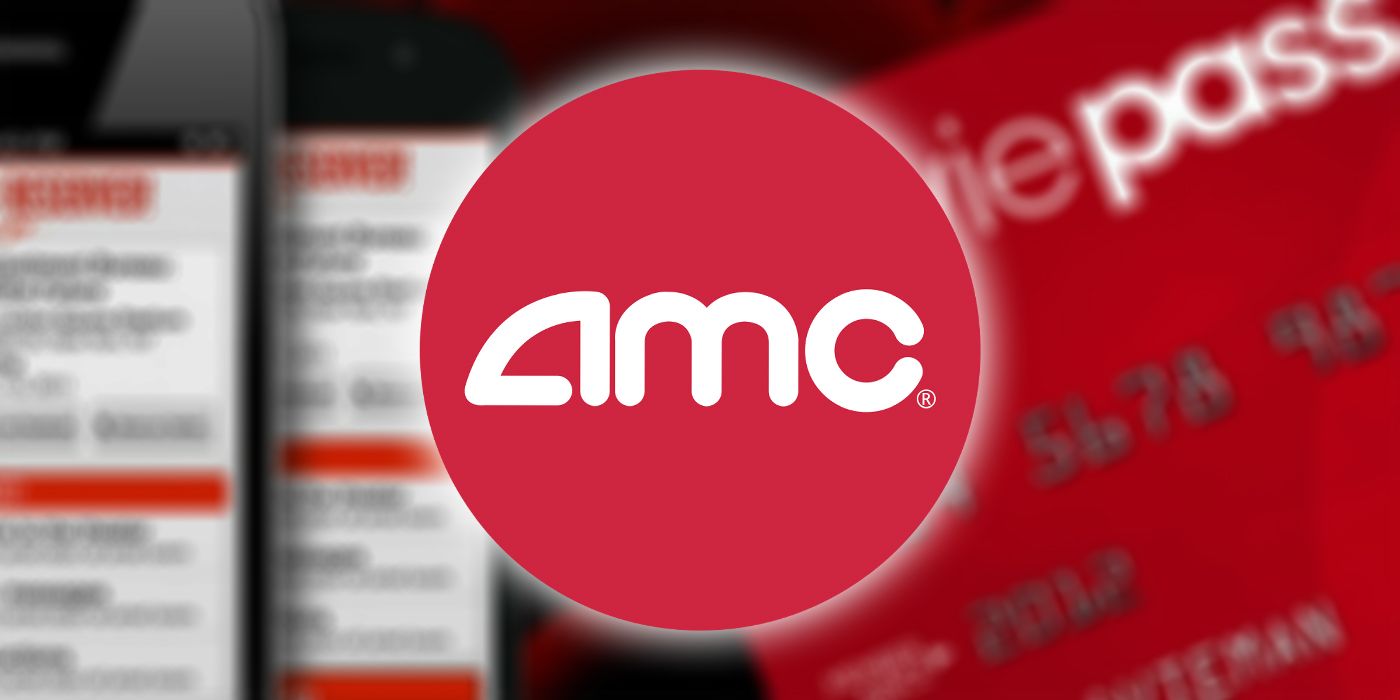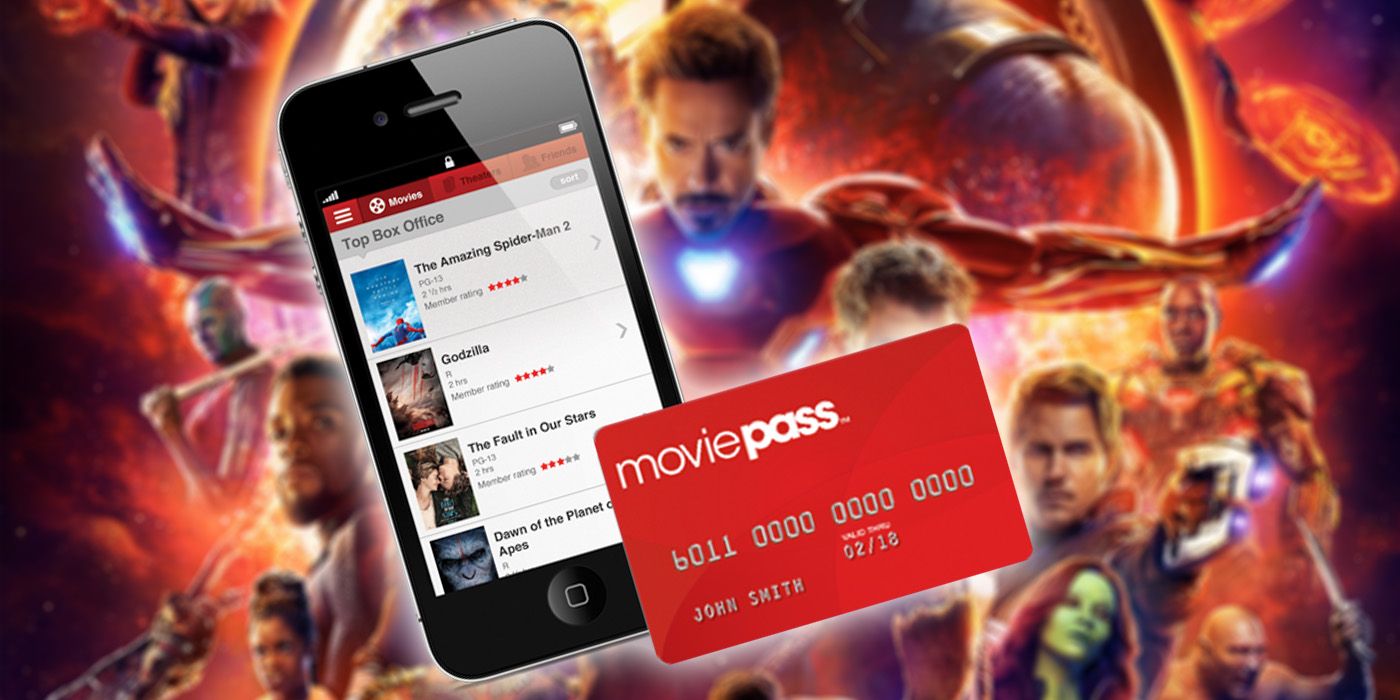MoviePass was launched back in 2011, but the subscription service rose to new levels of popularity last year when they made some revisions to their business model. They lowered their monthly price to $9.95, giving users the ability to see a movie in theaters every day for an unbelievable deal. Unsurprisingly, MoviePass saw their subscriber numbers skyrocket thanks to the great value, and they currently have more than 2 million users who take advantage of what they have to offer.
While there are mounting concerns about the service's longterm viability (stock prices have gone down), MoviePass seems to be as strong as ever and benefitting the film industry. More people are going to the theater because of MoviePass, seeing a wider variety of titles than they normally would. Additionally, MoviePass just launched a new venture where they are getting into the business of distributing their own films, such as American Animals. As the company continues to evolve, they have a number of exciting developments planned. Screen Rant had the opportunity to speak with MoviePass CEO Theodore Farnsworth about the excitement of the past year and what's next.
What would you say is the biggest challenge of keeping MoviePass viable with its current business model? Because I’ve seen a lot reports about stocks being down.
Theodore Farnsworth: I’d say the most least challenging one to me is on the financial side. If a lot of the people that understood where we are in terms of raising money, what we’ve raised, what we’ve done, continue to do. Like, we just bought a production house last week. Everybody thought we were out of money and then we turn around and buy one of the biggest production houses in Hollywood. So that part’s the least of my problems right now. I think our biggest challenge is keeping up with the growth. Customer service side, which we’ve done tremendous on bringing on more and more people on that side so it’s made great headway. But also keeping up with the technology side. We brought in a product guy from Spotify who’s been there for three months - Mike Berkley who’s doing an amazing job on that. It’s more operational things like that for the challenges of keeping up with the growth.
I also think as we start to look at international markets, because we’ve been approached since day one on international markets and international expansion. Where do you go first? We have a good idea, but is it Europe, South America, the Asian side of the world, the whole Pacific Rim. All those we’ve been looking at for a while. Those are just your everyday challenges of that type of stuff.
You mentioned international expansion, which leads into my next question. Other countries have subscription services of their own, so I was wondering how the existence of those impacts MoviePass’ expansion plans.
Theodore Farnsworth: I think the best expansion when we go to any market, what we look for on the theatrical side where the theaters are very fragmented. Here in the U.S., it’s like 45% of the market is all independents, and then the other 55% is the top three or four. So it’s fragmented. Canada is a little bit different where pretty much 80% is one company. But when you start going to Europe or South America, it’s very fragmented. And that’s always where it works best with us. Say somebody comes out with their own subscription plan, like an AMC or whatever, it’s only available in their theater, which may only be 15 or 20 percent of the market. We’re available in 91% of the market. All the expansion that we do over there would be very similar to what we do over here, where we’re available in 90% of the market, where some of them might only be available in 20% of the market. It’s a much better play for the consumer, where they can use any theater.
I know MoviePass has received a little bit of pushback from theater chains, including AMC. So I was wondering what you guys were looking to do to improve that relationship in the future.
Theodore Farnsworth: This year we’ll spend well over $120 million with AMC, you know. So I think you’re gonna see sooner or later where we will start exerting some of our leverage with an AMC or whatever. We took out 10 AMCs a while ago to see what would happen, and really we had no fallout from a consumer standpoint. What we saw was the theaters in the areas where we took those 10 AMCs out was the other numbers of the other theaters rose dramatically between 20 to 30 percent in traffic. So, we will start doing that stuff if we don’t come to any kind of an agreement with them. But we are talking to some of the bigger ones - we’re in talks with them as we speak. But AMC, I’m not too positive on AMC. We haven’t had a great relationship since day one.
That’s unfortunate because that’s my local chain here. That’s the closest theater.
Theodore Farnsworth: You can still use it. They can’t tell us that they can’t use it because it’s a MasterCard. They can’t throw you out. I don’t get it from AMC’s standpoint when you’re doing that kind of business with them. So they think they’ll just wait us out, but we’ll do things before letting them sit there and wait it out with us.
On another note, you look at theater chains like Landmark, which is Mark Cuban and his partner Todd. I think you could probably call them and ask how it’s going for Landmark Theaters, which is one of the bigger ones out there. It’s Todd Wager and Mark Cuban. We went live with them two months ago, and I can’t give you the exact numbers, but I’ll tell you they are blown away by what we do. No different than what we’re doing with our own movies like American Animals. I don’t know if you saw that last week.
I haven’t seen it yet.
Theodore Farnsworth: Not the movie, but the testing that we did when we rolled it out last week for the first theaters in LA and New York. We started to launch the movie. It came back with great reviews, but more importantly it’s doing almost $35,000 a screen, which is insane. Your average on an independent film is normally $5,000 - $7,000 a screen. Obviously working with The Orchid is great because as distributors I think they’re phenomenal, but a lot of that is us pushing our MoviePass subscribers to see the movie as well.
Shifting gears for a second, there were some changes you guys implemented this year, including no repeat viewings. I was wondering what the thought process was behind some of those and if you were prepared to face any of the backlash that came with those decisions.
Theodore Farnsworth: It’s interesting, because MoviePass always had a one-movie policy. You couldn’t see the picture more than twice. When I first took over the company, they had that in their policy and procedures. And then they did away with it because we didn’t think it would be such a big deal. But what happened was, it really took a hold with people doing it as fraud. They’d go to see a certain movie maybe 10 times, and then we’d find out it wasn’t really them. They were going to the movies and then give it to their friend the next day, and the next day, and the next day. For what we’re doing for $9.95 a month, you can’t sit there and have people fraud the system for six or seven movies, 10 movies a month, whatever it was. That was always in there from day one, and then we just did away with it. But it was always in our policy and procedures. I thought the backlash would have been much worse, to be honest with you. But I really think it was the abusers that were the backlash. When we implemented our whole new system with that and also you can’t share device-to-device because people were sharing passwords and all that stuff, that’s where you heard a lot of complaining. But I’ll tell you a lot of those people that were complaining are the heaviest abusers of the system. You can’t let people sit there and abuse it for when the people who just want to go to a movie a month or a couple movies every three months and then they’re penalized because of people doing the fraud.
How serious were those abuse problems that you saw?
Theodore Farnsworth: Oh it was over 30 percent. Which is tens of millions of dollars a month you’re saving in burn. Because it was over 30 percent we saw right away.
Thirty percent of all users?
Theodore Farnsworth: No, no. It was 30 percent of the consumption. The way our users break out is that 88 percent of our users go to 0-1 movie per month. The other 12 percent are the heavy users. Now, it may just be they love movies and they go to 2-3 movies a month. That’s fine, but it’s when somebody starts sharing the app or they start scalping the tickets and they sell the tickets, or they’re sharing their device or password and things like that. That’s really where we had to to straighten it out from that standpoint. So we’re thrilled with the way that’s all gone, actually. And our user base has gone up. So it’s not affecting that at all.
How do you think MoviePass can continue to improves as it evolves from here?
Theodore Farnsworth: That’s gonna be a lot longer interview than what you and I are talking about [laughs]. Let me tell you the ones I think are most exciting right now. One is with our acquisition of Emmett Furla Oasis Films, which does a bunch of Mark Wahlberg movies, Sylvester Stallone, and Schwarzenegger, and all kinds of action movies in the last 20 years. Having our own movies like American Animals, Gotti, I think you’ll see more of them in the near future. That to me is the most exciting part because what happens there as we start to do our content, is we can bring the MoviePass subscriber to the red carpet events, we can do private screenings in their town where the actors show up because you own the production all the way through. So, you put that in there and all of a sudden you’re bringing Hollywood to Main Street. You’re really bringing that whole experience to a small town or even a big town. But having our own content where we’re able to do that and share that with the MoviePass subscriber I think is great. I think technology wise, some of the things we have coming up, Bring a Friend, a family plan, all those things are on our road map and being worked on as we speak. I think that’s a big one is how to bring a friend.
Fifty percent of MoviePass subscribers that go to a movie, they bring a person with them that’s a non-MoviePass subscriber. Independent research shows that. So there’s really a big lift. Say for a particular movie you’re buying 20,000 tickets for MoviePass, that really means out of those 20,000 you probably have 30,000 people going to that movie. Right now, we account for 7-8 percent of all tickets sold in America. But when we push a movie, it can go anywhere from 15 percent to as high as 35 percent of the box office nationwide.
Do you guys have a target date for that Bring a Friend or family plan?
Theodore Farnsworth: The Bring a Friend and the family plan I believe will be out by mid-July. Might be soon. We’ve been working on that one. That was our number one demand.
I’m sure. Is that going to cause the monthly plan prices to go up or are they going to stay the same?
Theodore Farnsworth: No, they’ll stay at the same rate. We’re staying at $9.95. We’ll always test different things, but no, it’s staying at the same rate.
In the past year, what would you say is the most positive impact MoviePass has had on moviegoers nationwide?
Theodore Farnsworth: I’ll answer that in two different ways; one from the consumers’ side and one from the studio’s side. Without a doubt, the most positive impact is getting more people to the theater and getting millennials to the theater. Millennials were dropping off by 20 percent, because they’re not going to pay $10-15 per ticket. They don’t know if they’ll like the movie, or whatever. Fifty percent of our users are millennials. So I think the biggest impact there is for the producers, directors, creators of the smaller films, the $50 million budget films like I, Tonya or Three Billboards, movies like that where all of a sudden they’re starting to see a real audience see their movies in theatrical release. I don’t believe any directors or producers that I’ve talked to - none of them plan on making these movies and releasing them on your iPhone 8. If you’re doing a movie you want to see it out on the big screen. So with MoviePass, we can guarantee that box office. We know that when we push our subscribers to your movie, like if you created a movie and we did a deal with you, we know we can guarantee a certain number of box office tickets that we buy from the standpoint of who’s going to see that movie in our database. And we search our database and use all the data to pinpoint it. Like you might like action, or maybe you like romance, or any kind of genre that you like, we know that from your viewer habits, so we can tailor to the consumer better of what movie we think they’re gonna like. No different than a Netflix with their algorithms and things like that.
Then on the consumer side, it’s the fastest-growing subscription company ever in the history of the Internet. Faster than Spotify, Netflix, any one of them out there. I think that tells you we hit a nerve where I think it was a very archaic system on the theater side and the numbers had gone down for the last 20 years constantly. Theaters can sit there and say, “Oh, everything’s fine, everything’s wonderful,” but it’s not if your business is declining. And this year is the first uptick the industry has seen. I don’t think it’s coincidental the uptick for the theaters is like what we do on tickets. The uptick for the theaters is like 3 percent, and we account for about 7-8 percent of all tickets. I think from the consumer’s standpoint, we’re allowing the consumer to see movies they might never have seen on the big screen. With MoviePass, people are more apt to try out a movie they would never watch or even think of because there’s no cost associated with it. So, if they’re thinking about going to an American Animals but they’re not sure, they’ll go with MoviePass because it doesn’t cost them anything. If they like it, that’s great.
I’ve done that.
Theodore Farnsworth: There you go! And you know what, 99.9 percent of our people do that, but that was the whole premise of that. Because if we can get people to watch your more - I wouldn’t even say independent films - but $50 million and less films, it just spreads it out across where it’s not just blockbusters at the theater. It’s not all about Marvel or any one of the big ones like that. We think it’s worked out great for Hollywood. The directors and producers - oh my God - they love us because we can guarantee a box office. And then the consumers, they love us because it’s a great deal. For the life of me, I can’t figure out - you look at the AMCs - why they wouldn’t do a deal with you. They think you’ll go away. When I bought into MoviePass, I really bought into the fact that Mitch [Lowe], my partner who’s the co-founder of Netflix and also started RedBox in the early days, and I knew he was a disrupter that way. They thought Netflix was gonna go away. Blockbuster said Netflix will never work for years, and all the studios and everybody else said it wouldn’t work and now look. They have a market cap bigger than Disney 20 years later. We’re not going anywhere. We’re going to continue on. You saw the acquisition we just did and there’s more acquisitions coming in the pipeline.
Thank you very much.



